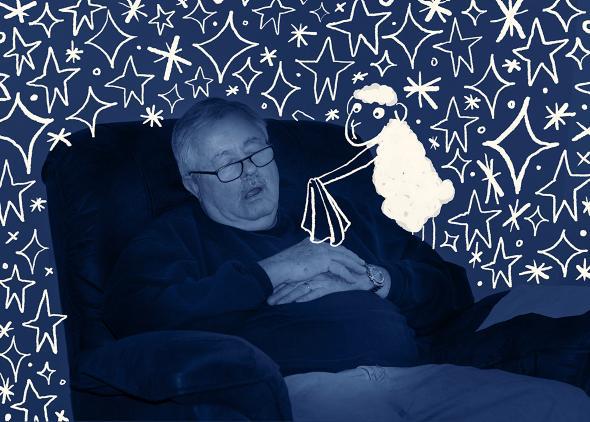Every few weeks or so, I twitch awake in the middle of the night and find my face planted in a warm, viscous puddle about the size of a compact disc. Often I will be on my stomach, having rotated out of an initial side sleeping position and maneuvered my arm beneath my head as a kind of supplemental pillow. Perhaps because I am a mess of a sleeper—I sweat, I twist, I kick, and I occasionally snore—this moist disturbance doesn’t keep me awake. I simply flip over my pillow and plop back to sleep. Only after my alarm has roused me at the intended time do I realize that half my face is covered in sticky, malodorous saliva.
I am an occasional nighttime drooler. And it’s absolutely gross.
So why do I—and perhaps you!—drool? According to one paper in the journal Oral Surgery, Oral Medicine, Oral Pathology, Oral Radiology, and Endodontology, drooling appears to result from a “dysfunction in the coordination of the swallowing mechanism, resulting in excess pooling of saliva in the anterior portion of the oral cavity and the unintentional loss of saliva from the mouth.” According to another paper, from the British Journal of Medical Practitioners, the excess production of saliva itself and the mouth’s inability to contain a surfeit of it can also be culprits. Many regular droolers have some kind of neurological impairment—perhaps they suffered a stroke or have cerebral palsy—and their drooling can be pretty severe, causing dehydration, odor, chapped skin, and other problems. My own drooling is merely annoying in comparison and only occurs when I’m asleep. There could be a few reasons for that.
I called up Christopher Y. Chang, an ear, nose, and throat surgeon in Warrenton, Virginia, who encounters patients with the same problem as mine. He explained that even if I am able to swallow the spit that collects in my mouth as I sleep, if it’s pooling in my cheek due to my sleep position, it could overflow. “The mouth is the path of least resistance,” he said. “The lips are right there.”
Luckily, most of Chang’s suggested courses of action are nonsurgical. If I came to his practice complaining about drooling at night, he’d suggest I try sleeping on my back rather than my side, which can allow saliva to pool. If I must be on my side—indeed, I must!—then I need to realize an open mouth could allow spit to escape. The problem there might be nasal congestion, which might be forcing me to breathe through my mouth at night. Deal with my sinuses, and I very well may solve my drooling.
What if that doesn’t work? “For some individuals who are really drooling even if there’s nothing wrong neurologically, we could do Botox injections into the spit glands” to slow the secretion of saliva, Chang says, but he’s only done it for patients who have suffered strokes or have some other disorder. Botox isn’t even the last resort: For exceedingly heavy droolers—almost certainly someone who’s been “neurologically devastated,” Chang says—removing the spit glands altogether is an option. For daytime droolers, researchers describe even more treatments, like undergoing “oral motor therapy” with a speech therapist, modifying one’s behavior with biofeedback, and surgeries even more extreme than the removal of spit glands. One paper describes tongue acupuncture as an “alternative or adjunctive” option for kids, noting that “[c]hildren easily tolerated the treatment with significant improvement of drooling and no complication,” but “the technical skill and experience of the practitioners is a marked obstacle for this technique.” I bet!
So what’s next? It’s been several weeks since my last drooling incident—which might be because I haven’t been having any trouble with congestion. My best shot for now may be making sure my nasal pathways are clear before bed. I also suspect I drool when the placement of my arm forces my mouth open, so I may need to change my favored sleep position. However I try to fix my drooling, I’d prefer to figure it out at home. I sincerely doubt Slate’s health plan covers tongue acupuncture.
Read more from The Drift, Slate’s pop-up blog about sleep.
